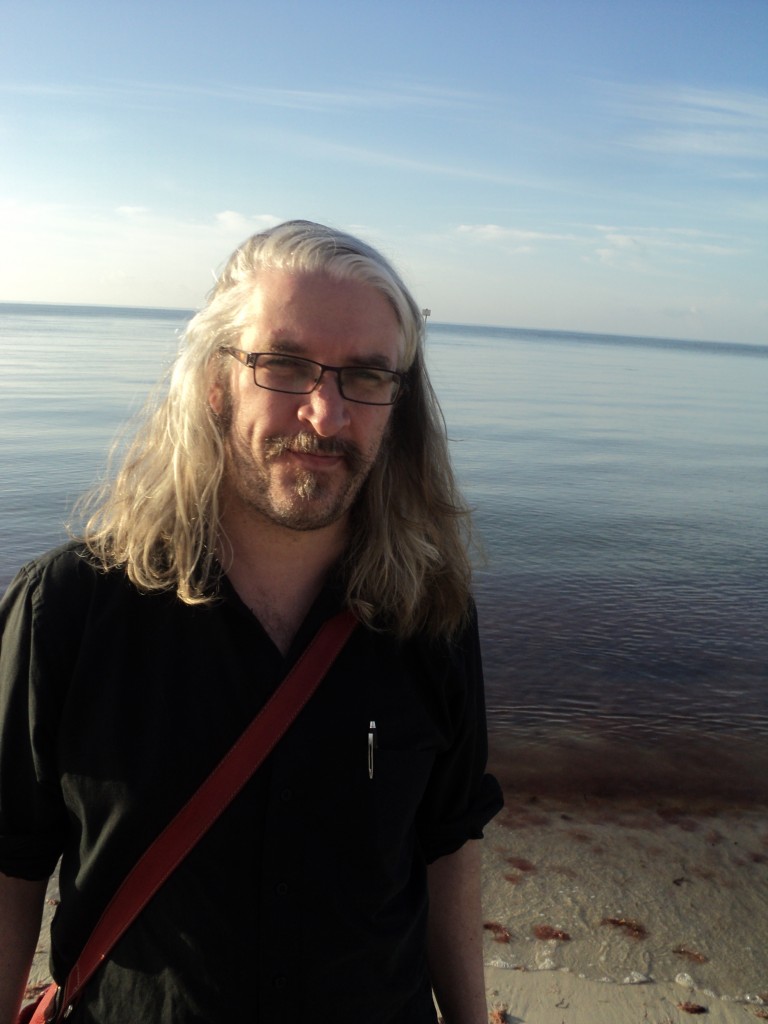 Author photo by Christine McNair
Author photo by Christine McNair
Life is too short for a long story.
—Lady Mary Wortley Montagu (15 May 1689 – 21 August 1762)
Writing is a passion in the language that will never fit into the world, into lived experience, words. Afterward: birth.
—Chus Pato, trans. Erín Moure, Secession
1.
Fiction takes forever. One slow word against another.
Tales are told of writers who spend a day to add a single word, as the subsequent day might just be spent removing it. Yes, this happens. Others write in concentrated bursts, and very little after; at least, until the next burst.
The most important writing lesson: patience. The second: learning to recognize what works best for what it is you think you want to do. How to do the writing you do, and do it best. I think my own work a combination of the day spent adding and removing, and the productive, compressed burst. The slow, repeated carve.
But then: the rare compression so dense it explodes for days, or even weeks, leaving a wake of drafts and finished works. A writing big bang.
I’ve a single short story I’ve been poking at for more than two years, less than one hundred words in length. I haven’t yet figured out the hinge on which to hold two semi-connected thoughts. The one phrase that makes it perfect.
Aiming for sentences you could bounce a quarter off. Tight.
This is about precision.
/
2.
First drafts come in fits, and starts. In rushes. Longhand scraps grafted to the flesh of earlier drafts. Stitch and scratch and scrape. One word, and another. Move or remove sentences, whole paragraphs. Let it sit and sink in the head awhile.
Each story akin to an image that shifts, and moves about, before coming into focus. Ah, yes. This. However long this takes.
Afternoons in pubs or coffeeshops away from laptop, during those periods my mother-in-law enables childcare. What my days have shifted into, and my next few years. During bursts of baby-sleep I rush to office desk and tinker. Move another set of words, aside. Attempt to figure out what else the story requires.
/
3.
As scientists tell us: life is, in fact, imaginary. Not what occurs, but our responses, perceived and stewed inside a chemical meat. We might mention narrative. This, too, is invented.
It’s a complicated weave. Stories patched together via stitches of imagination, overheard or half-remembered phrases, images and instigations, queries, stolen half-memories, family secrets, all of which evolve into a single work that makes sense on its own terms. Somehow. Through craft and care and steady work.
Description should not exist for its own sake. Nor should anything else.
I’ve a character with a dead mother; I recall the emotion, ascribe the same to her, but in entirely different circumstances. Everything I write is true, but might never have happened, and not necessarily in that order.
/
4.
Kill your darlings, they say. I’m not convinced. You don’t excise the extraordinary to smooth or soothe the mundane. It should force the text as a whole to be stronger. Kill, instead, the weak. A strong roof will collapse beneath poor walls and foundation. A strong roof on the wrong house will seem out of place.
Akin to extracting grey hairs as they surface. You can’t help but end with nothing.
/
5.
The Nihilist Spasm Band: “I Have Nothing to Say / But I can say it very well.”
Writing not to tell what it is already known, but instead, to problem-solve. To troubleshoot. We create problems for the sake of unraveling, to figure out. Explore. Not the idea of nothing to say.
George Bowering once wrote: Don’t write what you know. Write what you don’t know. Otherwise, you might never learn.
This is something you might already know.
/
6.
Fiction is something built, constructed out of parts, not out of thin air. Between empathy and experience, we speculate, articulate and guess. What would happen if? What would that character do, or not do? And what might happen then? Who are you, really? We slip our own thoughts and curiosities within. We slip in other things we’ve heard, or only read about. Invent, at times.
Who was it, said of writing: we battle laziness and lies, in our search for the truth.
Not that such a thing exists: truth, at least in terms of absolute. Even objectivity is subject to bias. IQ tests taken by smarter apes, who answer that the safest place during a lightning storm is in the branches of a tree. We would be wrong, but they are not. Discuss.
Sketch out, and if by chance, impart. Sometimes a clarification, a shift in perception, an alternate point-of-view. Other times, a warning. If you’re lucky, the occasional wisdom.
This whole piece, an invention. Perhaps none of this has happened.
—rob mclennan
Born in Ottawa, Canada’s glorious capital city, rob mclennan currently lives in Ottawa. The author of nearly thirty trade books of poetry, fiction and non-fiction, he won the John Newlove Poetry Award in 2010, the Council for the Arts in Ottawa Mid-Career Award in 2014, and was longlisted for the CBC Poetry Prize in 2012. His most recent titles include notes and dispatches: essays (Insomniac press, 2014) and The Uncertainty Principle: stories, (Chaudiere Books, 2014), as well as the poetry collection If suppose we are a fragment (BuschekBooks, 2014). An editor and publisher, he runs above/ground press, Chaudiere Books, The Garneau Review (ottawater.com/garneaureview), seventeen seconds: a journal of poetry and poetics (ottawater.com/seventeenseconds), Touch the Donkey (touchthedonkey.blogspot.com) and the Ottawa poetry pdf annual ottawater (ottawater.com). He spent the 2007-8 academic year in Edmonton as writer-in-residence at the University of Alberta, and regularly posts reviews, essays, interviews and other notices at robmclennan.blogspot.com
Good going, Rob.
You have always been in the corner of my eye and yet
I don’t think we’ve ever met.
But I’m a fan.
Best wishes,
Shannon